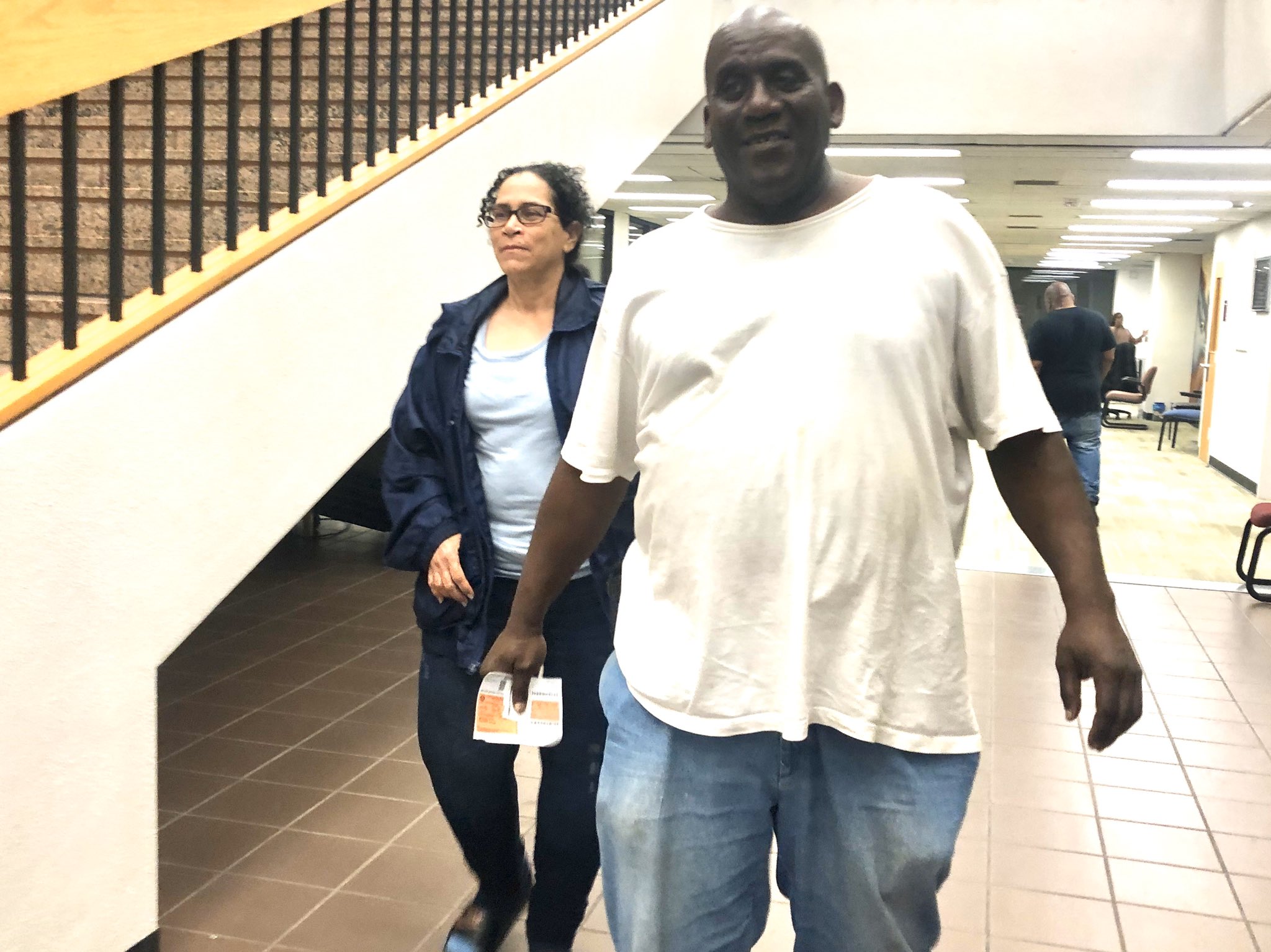District Attorney Kim Ogg’s prosecutors quietly reviewed a voter fraud allegation against Hervis Rogers — the Houston parolee who waited six hours to vote in the February 2020 presidential primary — nearly a year after illegal voting charges against him were dismissed in Montgomery County, according to court records.
Prosecutors presented at least one count of illegal voting against Rogers to a grand jury in July to determine whether an indictment should follow, court records show. The jurors declined to indict.
The attempt to consider charging 64-year-old Rogers comes nearly a year after a similar attempt by Texas Attorney General Ken Paxton’s office to prosecute him on illegal voting charges in neighboring Montgomery County — the jurisdiction where the AG’s office chose to prosecute Rogers even though his vote was cast in Harris County. Paxton highlighted Rogers as example of voter fraud and vowed to prosecute other cases like it.
[…]
Joe Stinebaker, a spokesman for Ogg’s office, said the AG’s office referred Rogers’ case to them after the dismissal.
“We can’t just ignore something like that,” Stinebaker said. “We decided the best thing to do was to let the community decide through the grand jury process. The grand jury clearly didn’t feel there was enough evidence to justify prosecuting this gentleman.”
[…]
Amanda Peters, a South Texas College of Law professor and former Harris County prosecutor, floated the possibility that Harris County prosecutors were pressured to consider the case. Bringing a bad case to a grand jury is sometimes a reliable way to end it, she said.
“Did she do this to pass the buck?” Peters said. “The grand jury can be your friend in the sense of not taking charges — you’re absolved.”
Grand juries are required to review all felony charges but for investigations where defendants have not yet been charged, prosecutors aren’t required to bring the case before them, said Sandra Guerra Thompson, a law professor at the University of Houston.
“I think, sometimes, the grand jury is an effort to have political accountability,” Thompson said. “District attorneys in Texas are elected, they answer to the public. If there’s enough public interest in a matter, especially if it’s being sent to them from a state agency, there may be a feeling that we need more transparency in a decision. It can be taken to a grand jury to have that additional community input.”
The grand jury’s decision at the downtown Houston courthouse went unnoticed by Rogers and a team of lawyers, including some with the ACLU of Texas, who represented him in the Montgomery County case. One of the lawyers, Nicole DeBorde Hochglaube, expressed shock Thursday after learning that the grand jury considered the case.
“I knew nothing about it,” DeBorde Hochglaube said.
See here and here for the background. I will certainly understand anyone who wants to be mad at Kim Ogg over this. One can absolutely argue that at the least her office should have notified Hervis Rogers’ attorney. That said, if her plan was basically just to make this go away, then following this course of action was probably her best bet. Not that she would ever be able to confirm that – one simply does not admit to half-assing a grand jury – but you can see it that way. I speculate, you decide. However you do see it, remember that the real villain here is Ken Paxton, who took this to Montgomery County in the first place because he thought it was his best chance to attack Hervis Rogers. I hope Hervis Rogers gets a lot of pleasure out of the impeachment trial and the various other legal matters involving Paxton that will follow. He deserves at least that much.


The Houston Chronicle also reported that by the time this was submitted for review by the Harris County grand jury, the 3 years statute of limitations had already passed. I don’t understand. Can you even indict someone if limitations has expired? If not, why would you submit at all? Was the decision of the grand jury based on the expiration of limitations, rather than the facts of his case?